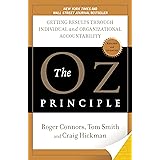A recent FWC case has highlighted that employers are subject to general protections claims even when a worker is employed on trial or probation status.
A food and beverage attendant who worked just one shift has made a successful general protections claim at the Fair Work Commission (FWC).
“If a person is employed, even for one shift, then certain obligations arise… and, as [the employer in this case] might now appreciate, certain protections are afforded to employees,” said FWC Deputy President Michael Easton.
The facts of the case
In March 2023, a new employer took over the café where the attendant had been working since June 2022. This employer asked the attendant to continue working, then booked him for a shift – without mentioning it was a trial.
Afterwards, the attendant, via text, asked the manager about his pay rate. The manager replied the employer “would pay ‘23$/ hour flat’ and was not prepared to pay $27.46 per hour” (the restaurant industry award rate for a Grade 1 casual food and beverage attendant). The attendant did not agree to this, and the employer did not offer him further shifts.
The worker’s general protections claim – and why it succeeded
The attendant later brought a general protections claim against the employer under the Fair Work Act (2009).
“A worker must show two things to make a general protections claim,” says Will Snow, Director at Snow Legal.
“First, ‘I was an employee.’ Second, ‘The real reason I was terminated was, not that I was bad at my job or didn’t rock up to my shift, but that I exercised a workplace right, such as enquiring about my rights under an industry award or complaining about bullying, or because of a protected attribute, such as my sexuality.’”
The FWC held that the attendant’s claim satisfied both elements. First, the employer had treated the attendant as an employee. All communications were consistent with employment. These included the manager inviting the attendant to a team meeting, giving him an employee details form and referring to “this week’s roster”.
Further, the exchange of texts indicated the manager was willing to continue engaging the attendant, if he was happy with the pay rate. The fact that the attendant had worked only one shift was immaterial.
Second, the reason for the dismissal was the attendant’s exercise of a workplace right, in querying his pay. The employer did not express any other grounds, such as concerns about performance.
“The main lesson from this case is that you must make good HR decisions, even when someone is on probation.” – Will Snow, Director at Snow Legal
Are trial shifts ever legal – and, if so, what are employers’ legal obligations?
Trial shifts remain legal but must be proportionate. “It depends on the role, but the shift should only be as long as you need to make a fair assessment of the skills required – hours, not days,” says Snow.
“For example, a café owner could ask a prospective barista, ‘Make coffees for half an hour at our busiest time’, but couldn’t ask them to work for a week, including locking up the shop at night and doing all the merchandising – that would be free labour.“If it’s longer than reasonable, there’s a legal risk. And, ideally, if you’re getting a benefit, pay the person.”
Further, reasons for termination following a trial must not be grounded in the worker’s exercise of workplace rights.
Employers should also be aware that general protections apply broadly, including to independent contractors, labour hire workers and prospective employees.
Other recent general protections cases
General protections claims are on the rise – and can result in large payouts.
In a 2021 case, an employee complained in writing to her CEO after he micromanaged her, questioned her decisions and publicly embarrassed her. The CEO responded by inviting her to a meeting about her performance. The employee brought a successful claim to the Federal Court and was awarded $2.8 million.
In a 2020 case, a high-performing employee reported repeatedly to his employer that his co-workers were bullying him, and was subsequently dismissed. The employer claimed the termination was on the grounds that the employee did not work well with his colleagues and had failed to achieve sufficient growth. The Federal Court found for the employee, awarding him $3.5 million in damages under the Fair Work Act.
Practical tips for HR professionals arising from this case
“The main lesson from this case is that you must make good HR decisions, even when someone is on probation,” says Snow.
He has three recommendations that HR professionals can take to their leaders and line managers.
“First, be clear when you offer paid or unpaid work. If it’s a trial, be open. For example, say, ‘This is a trial. I’m going to ask you to demonstrate these three skills, so I can make a better decision.’
“Second, ensure that unpaid trials are very short and no longer than necessary.
“Third, when terminating someone, even after an unpaid trial, do it on proper grounds, [such as performance] on objective and valid information. It can’t be done because someone inquired about their rights, or said, ‘I don’t feel safe,’ or had to leave early because their kid had an emergency, and so on.”
This case might not have changed the law governing trial shifts, but it demonstrated the breadth of general protections, showed that employment is defined by the way in which a worker is engaged (rather than for how long), and highlighted the importance of clear communication.
Need help brushing up on HR laws and compliance? AHRI’s short course will give you an understanding of the key elements of legislation, regulation and practices HR needs to be across.
The post FWC allows a general protections claim for a worker after just one shift appeared first on HRM online.
Now retrieving an image set.
Getting to Yes: Negotiating Agreement Without Giving In
(as of April 19, 2025 02:49 GMT +00:00 - More infoProduct prices and availability are accurate as of the date/time indicated and are subject to change. Any price and availability information displayed on [relevant Amazon Site(s), as applicable] at the time of purchase will apply to the purchase of this product.)Now retrieving an image set.
Silent No Longer: Advancing the Fight for Disability Rights
(as of April 20, 2025 02:49 GMT +00:00 - More infoProduct prices and availability are accurate as of the date/time indicated and are subject to change. Any price and availability information displayed on [relevant Amazon Site(s), as applicable] at the time of purchase will apply to the purchase of this product.)Now retrieving an image set.
The Oz Principle: Getting Results Through Individual and Organizational Accountability
(as of April 19, 2025 02:49 GMT +00:00 - More infoProduct prices and availability are accurate as of the date/time indicated and are subject to change. Any price and availability information displayed on [relevant Amazon Site(s), as applicable] at the time of purchase will apply to the purchase of this product.)Now retrieving an image set.
There's Got to Be a Better Way: How to Deliver Results and Get Rid of the Stuff That Gets in the Way of Real Work
(as of April 20, 2025 02:49 GMT +00:00 - More infoProduct prices and availability are accurate as of the date/time indicated and are subject to change. Any price and availability information displayed on [relevant Amazon Site(s), as applicable] at the time of purchase will apply to the purchase of this product.)Now retrieving an image set.
Why Workplace Wellbeing Matters: The Science Behind Employee Happiness and Organizational Performance
(as of April 20, 2025 02:49 GMT +00:00 - More infoProduct prices and availability are accurate as of the date/time indicated and are subject to change. Any price and availability information displayed on [relevant Amazon Site(s), as applicable] at the time of purchase will apply to the purchase of this product.)Now retrieving an image set.
Who: The A Method for Hiring
(as of April 19, 2025 02:49 GMT +00:00 - More infoProduct prices and availability are accurate as of the date/time indicated and are subject to change. Any price and availability information displayed on [relevant Amazon Site(s), as applicable] at the time of purchase will apply to the purchase of this product.)Now retrieving an image set.
101 Tough Conversations to Have with Employees: A Manager's Guide to Addressing Performance, Conduct, and Discipline Challenges
(as of April 19, 2025 02:49 GMT +00:00 - More infoProduct prices and availability are accurate as of the date/time indicated and are subject to change. Any price and availability information displayed on [relevant Amazon Site(s), as applicable] at the time of purchase will apply to the purchase of this product.)Now retrieving an image set.
The Charismatic Leader: 21 Skills to Connect with People
(as of April 19, 2025 02:49 GMT +00:00 - More infoProduct prices and availability are accurate as of the date/time indicated and are subject to change. Any price and availability information displayed on [relevant Amazon Site(s), as applicable] at the time of purchase will apply to the purchase of this product.)Now retrieving an image set.
The Sparkle Effect: 10 Powerful Concepts to Awaken Your Brilliance
(as of April 20, 2025 02:49 GMT +00:00 - More infoProduct prices and availability are accurate as of the date/time indicated and are subject to change. Any price and availability information displayed on [relevant Amazon Site(s), as applicable] at the time of purchase will apply to the purchase of this product.)Now retrieving an image set.
























